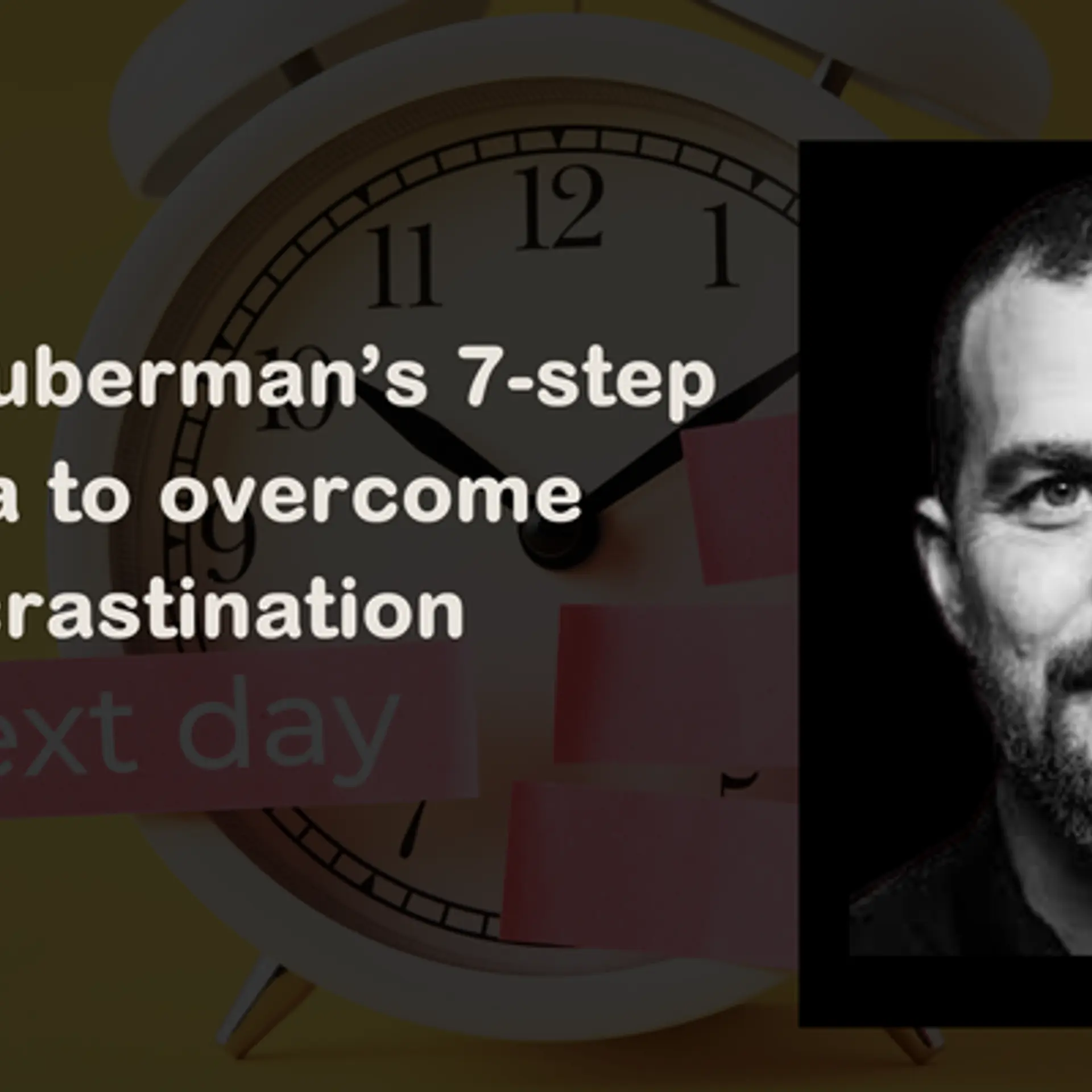Serious business of comedy — meet the boy from Gorakhpur who built India's second comedy club in Bengaluru
It’s the weekend and as always Bengaluru’s Brigade Road presents a visual of honking cars, pedestrians, and packed sidewalks. And yet, 25-year-old Suhani Mohan is rushing through this cacophony to find a place into The Pavilion on Church Street. Her favourite comedian — Daniel Fernandes — will soon be performing at That Comedy Club.
Daniel Fernandes is only one among a number of well-known stand-up comedians to have performed at the club, and future performers include the likes of Radhika Vaz, Aditi Mittal, Biswa Kalyan Rath, Kanan Gill, and Anuradha Menon.
Suhani can’t wait to get inside the dark room, grab a drink, and laugh her heart out sitting in a corner.
One of the regulars at That Comedy Club, she says:
It is a refreshing change to do something other than just going to a bar or a restaurant, and there’s nothing like a good laugh, which can relieve the stress of a tiresome week.
Started in May this year, in a span of over 17 weeks, That Comedy Club has sold over 7,250 tickets and has conducted over 66 shows.
However, for 29-year-old engineering graduate and former IIT aspirant Sumendra Singh (popularly known as ‘Sam’), setting up That Comedy Club was the culmination of several events.
Just a year before building That Comedy Club, Sam had quit his job at CNN-IBN. He couldn’t explain this to his parents because,
By then I had taken over a lot of responsibilities at home. I had also killed my promoter career, quit my job, and had no plan ahead. It looked hopeless then, but I believed I'd find a way out.
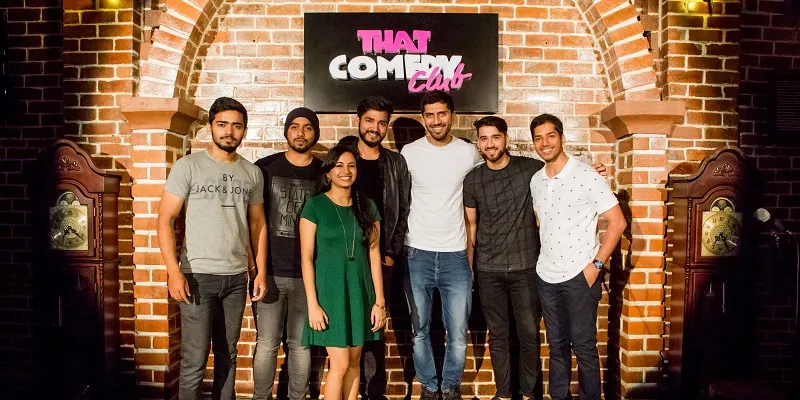
And the hustle begins…
Born in Gorakhpur, Uttar Pradesh, Sam had thought engineering to be the best course of action. Though he didn’t clear his IIT exam, he nevertheless joined an engineering college in Bengaluru and studied industrial engineering.
From engineering to being a club promoter, event manager, working in the media, and setting up That Comedy Club, Sam’s journey has seen several ups and downs.
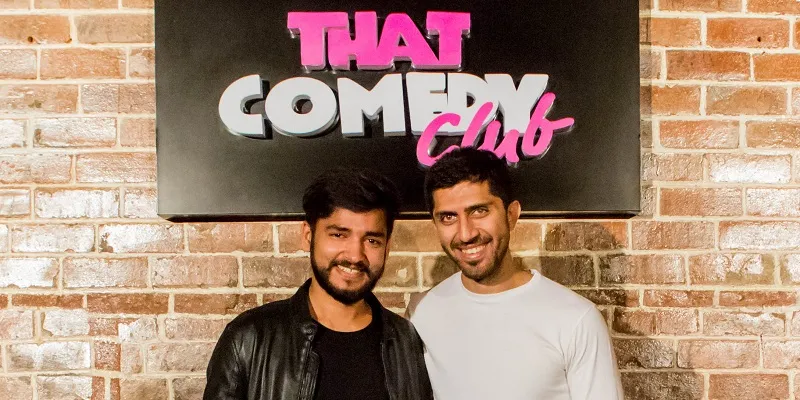
Hailing from a business family, for Sam, just getting into engineering wasn’t enough. So during his college days, he would keep trying different things, trying to make money and learn something in the process. However, nothing held his attention for long.
He says:
I was always looking out for interesting opportunities and knew the only way up was to study well. I still remember when I left home for the first time and had to catch a train to Varanasi. I missed the train by half a minute and kept chasing it along the platform. I was scared that I'd missed my chance of moving to a bigger city, a better school, and thus, lost out on my dreams.
Also read: Do standup only if you love comedy and stand up for nothing else – Kenneth Sebastian
The life of a club promoter
That fear went away soon. Sam was in Bengaluru and lived the life of an engineering student. His journey as a club promoter began serendipitously. It was after attending an afternoon party with his friends. He wasn’t really having fun, and it was when he was walking around that he happened to spot a guy at the gate, standing with two bouncers, collecting tickets and greeting people.
Someone mentioned that he was the host. “I went up and spoke to him. He introduced himself as the promoter/host of the gig. We got talking and he offered me a deal where he would give me some tickets to sell. If I sold 10, I could have one complimentary ticket. I did the math and set a target.”
This, however, wasn’t anything new for Sam. In school, he had happened to help a few friends who were putting a show together. He was in charge of managing the backstage work as he had no interest in going on stage. So, Sam mixed songs for the dance, drafted a show flow, and was on standby in case the team needed anything.
“That was the first time I saw sound and light mixers and tried my hand at them. It was the most fascinating experience ever! That was my first experience as an event manager but I was completely clueless about the field at that point,” says Sam.
Hitting the highs and touching rock bottom
So in college, when he got the idea for the next gig, Sam involved all his friends and sold close to 40 tickets. He invited his friends using the complimentary tickets, and that’s how his journey as a promoter began.
Soon Sam became a promoter for Blue Waves, a nightclub on Church Street. Again, pooling in the resources, he managed to get the Saturday Night Party scene, and helped work in the Electronic Dance Music scene.
Over the next two years, he learnt a lot about music, production, event management, artist management, design, marketing, and promotions.
However, the thing about producing events is that the risks involved are huge. Profits are decent but losses will shut you down at once. Explaining this, Sam says:
So in January 2014, I lost a lot of money in an event I had produced. While the event went well, in the end my numbers didn’t match. After all those years, I felt that maybe I wasn't good enough for the field and should get myself a regular job.
This was when he joined CNN-IBN but after quitting, he made a little money with events and was on the lookout for something interesting. During this time Sam happened to meet Aabha Hanjura, his ex-boss from CNN IBN at a club that was hosting a comedy show. It was the Melbourne Comedy Festival doing its road show in India.
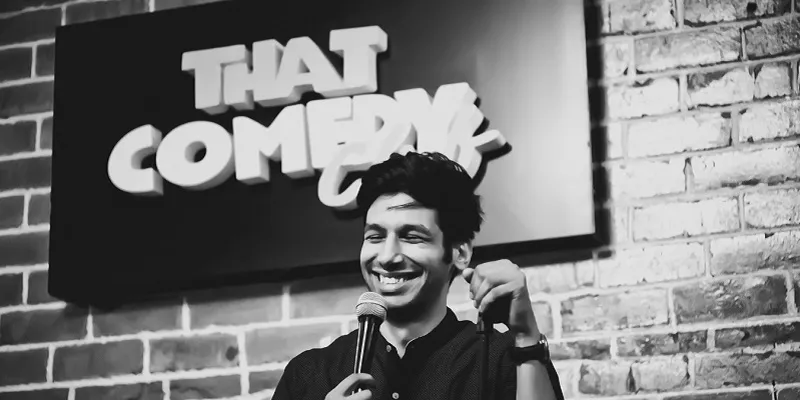
The serious business of comedy
The producer in Sam saw an opportunity in live comedy. The whole setting was perfect. People had bought tickets, they were all seated, food and beverages were available and moving, the artists on stage had put together a brilliant show, the set up was low on logistics and so on.
He soon started his research on the stand-up comedy scene both in India and overseas, and was surprised that there were so many opportunities for a comedy producer. Sam watched as much content as he could online, then went to a few shows here and there.
“At that point, there was just one comedy club in the country (Canvas Laugh Club), in Mumbai. I went to Mumbai a few times and watched the shows,” says Sam. Armed with details, he hosted the first comedy show with Radhika Vaz on March 15 last year. He had taken in space of – The Sugar Factory Club on Sundays to conduct the shows.
Post the tiny success of the first show — where they sold 100 seats — Sam sent mails to a lot of top comedians in the country, among whom Daniel Fernandes was one. Daniel called Sam up one day, and he was soon helping Sam with the programming.
Also read: ‘For the first 25 times on stage I got more silence than laughter’: Sanjay Manaktala
“That small chat then has today led to a strong working relation between us. I coined the company ‘Comedy Wagon’ for exclusive comedy production,” adds Sam.
Soon they went from a 100-seater to a 200-seater venue in UB City. However, they took a big financial hit in the beginning as they were flying down the best comedians on the circuit. After every show, Sam would try to figure out ways to cut costs while keeping the quality intact.
In the midst of producing these shows, Sam understood that although they were selling out the shows and people were happy, not enough people were exposed to stand-up comedy in the city. Sam says,
We had to push the boundaries. This realisation led to the idea of producing the Bengaluru Comedy Festival. A comedy festival is a high-risk proposition, needs team strength, production expertise, a lot of sponsors, and audience support.
Bringing a brick and mortar space
Having to produce a comedy festival with minimum expenditure was the most educational part of his journey as a comedy producer and entrepreneur With the help of his friends, he chalked out a plan, met Daniel in Mumbai, and discussed programming.
“I drafted the entire plan in my little office with my friends and started working towards it. We started about six months in advance and by the time we reached the festival dates, we were a team of 50 people, including friends and interns,” says Sam.
Soon after the festival, he decided to open a comedy club. This decision was based on the fact that the shows they produced didn’t have any recall value. People had the best time at the shows but didn’t know where to come back and when.
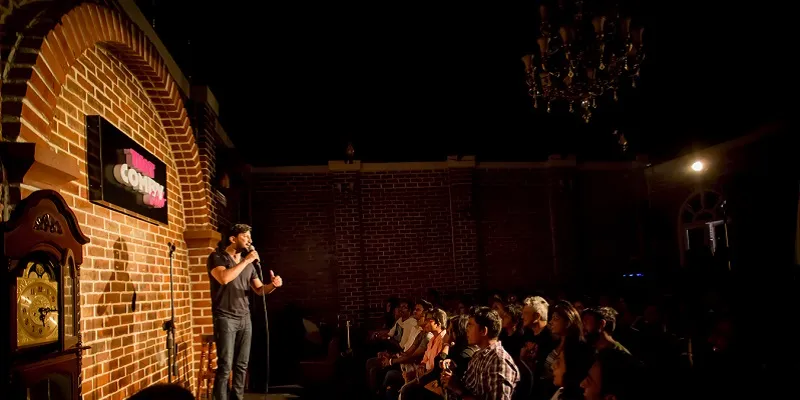
At that point, the country had just one comedy club. But producing events is one thing and opening a comedy club is another. A comedy club needs a lot of money, real estate, manpower, resources, and many other things.
Sam met his friend Adeel KQ and discussed the concept with him. They decided they would look for an existing venue, which had space to share. After a lot of hunting, they got a space in Beer Republic on Church Street.
Owner Anant loved the idea and immediately gave them a part of his space which was not being used. They all got working and within four months, That Comedy Club was ready. “Now we share their kitchen, bar, and staff and it’s become a nice, successful model,” says Sam.
With the limited resources in hand, Sam studied a lot of international club interiors online and drafted the entire layout. His architect friend Pavitra Dutta came in for a few days and helped them set up the place.
The people at Beer Republic helped them source the materials while all of Sam’s friends pitched in by giving them tips on how to further improve the look of the place. Reminiscing his journey, Sam says:
In this whole journey, there were countless times when I was broke. I lost money, felt like there was no way forward, and made mistakes. The next day I would wake up to return to the hustle. I’ve learnt in the last five years, that the hustle will never end, that there will be constant struggle. We will get small moments of joy along the way and that’s pretty much it. This format keeps the journey very interesting. I get my moments when I stand at the end of the room and watch the audience laugh while the artists are killing it on stage. That makes up for the entire struggle.






